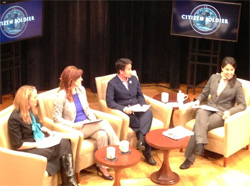Following the rules with service animals
by Beth Finke
The annual Westminster Dog Show has come to a close, and according to a blog post at The Bark, travelers flying out of New York City should expect an inordinate number of “service dogs” on board. The author of that post says she’s traveled to many dog shows, and over the years she’s noticed more and more people falsely claiming their show dogs are service dogs so they can fly along with them in the cabin.
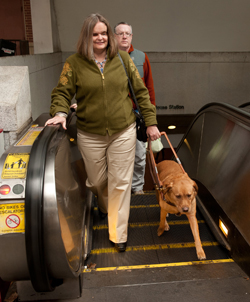 Donna Smith, director of training for Easter Seals Project Action was interviewed in the current edition of Equip Magazine about Americans with Disabilities Act (ADA) regulations for service animals, as well as her personal experience using a guide dog. Donna pointed out in the article that people traveling with service animals can be asked two questions:
Donna Smith, director of training for Easter Seals Project Action was interviewed in the current edition of Equip Magazine about Americans with Disabilities Act (ADA) regulations for service animals, as well as her personal experience using a guide dog. Donna pointed out in the article that people traveling with service animals can be asked two questions:
- whether the animal is, in fact, a service animal, and
- what tasks the animal is trained to perform.
A demonstration of the task can not be required, and that task does not have to be specially related to transportation or assisting the person while on board. The person using the service animal is not required to disclose the nature of his or her disability, either.
One of the most misunderstood pieces of the regulation about service animals, according to Donna, is that a person using a service animal cannot be required to show any kind of certification or identification associated with the animal — there is currently no national or universal certification process for trained service animals.
I wonder if people who break the rules and lie about a disability to get their dogs on board are more likely to end up with dogs who misbehave and don’t follow rules, either. If so, they might be out of luck keeping the fake service dog on board with them. From the ADA’s Commonly Asked Questions About Service Animals in Places of Business page:
You may exclude any animal, including a service animal, from your facility when that animal’s behavior poses a direct threat to the health or safety of others. For example, any service animal that displays vicious behavior towards other guests or customers may be excluded.







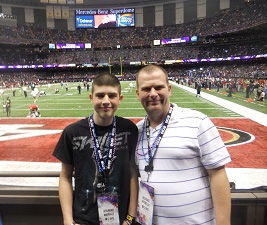 Combine the Harbaugh brothers, Beyonce, and a blackout and you’ve got a Super Bowl to remember. Thanks to our friends at
Combine the Harbaugh brothers, Beyonce, and a blackout and you’ve got a Super Bowl to remember. Thanks to our friends at 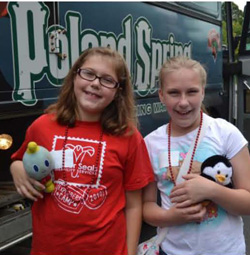 Last week several Easter Seals clients and their families visited
Last week several Easter Seals clients and their families visited 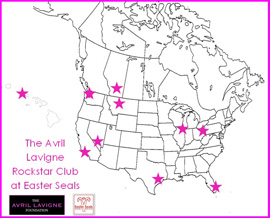 Last week
Last week 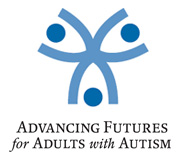 Easter Seals is a member of the leadership council for
Easter Seals is a member of the leadership council for 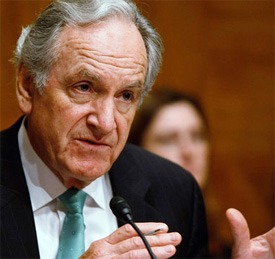 Last week Sen. Tom Harkin (D-Iowa) announced he will not seek a sixth term in the U.S. Senate, and this past Tuesday
Last week Sen. Tom Harkin (D-Iowa) announced he will not seek a sixth term in the U.S. Senate, and this past Tuesday 